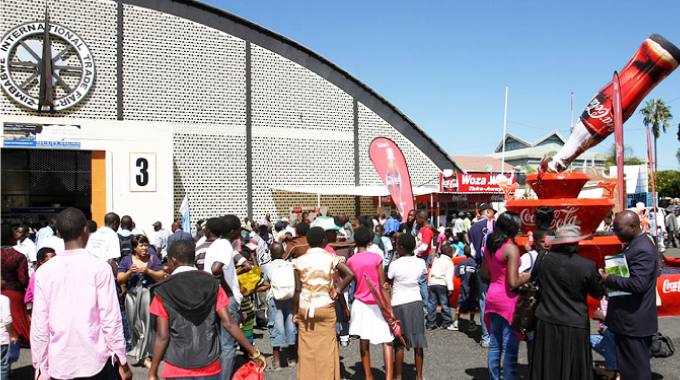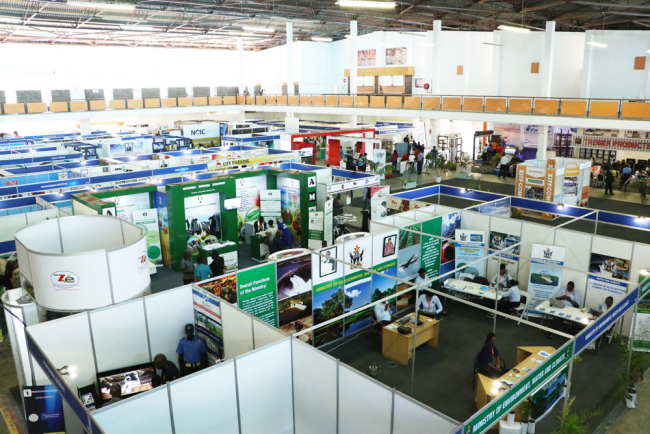The Zimbabwe International Trade Fair (ZITF) show provides the perfect ground for national, regional, and international companies to advertise their products and services to increase brand awareness, and to foster market synergies through face-to-face business dialogue with the objective of improving firm performance.
The ZITF 2022 show was Zimbabwe’s 62nd show and was successfully and safely held following the relaxation of strict COVID-19 rules. The event was well subscribed and highly successful in terms of quality of products, attendance numbers and networking opportunities.
A variety of agricultural value chain players from national, regional, and international levels had exhibits at the 2022 show. There was a clear increase in value addition companies compared to previous years. This perfectly aligned with the show’s theme for 2022: Rethink, Reimagine, Reinvent Value Chains For Economic Development.
The business-to-business trading period in the first three days saw visitors from different business backgrounds walking through the exhibition centre. There was a significant number of senior level business executives, and representation from the policy makers up to the highest echelons of government.
Over 500 companies from various sectors were in attendance.
These industries included:
- mining and manufacturing,
- training
- banking and finance,
- telecommunications,
- plastics,
- stationery,
- business services;
- consumer goods,
- clothing/textiles,
- leather ware/footwear,
- cosmetics/toiletries,
- non-manufacturing,
- construction,
- automotive
- IT/hi-tech,
- electronics and energy products,
- food and processing,
- agro chemicals,
- packaging,
- insurance and medical aid,
- environmental and climate change,
- tourism.
This array of agricultural participants could not have come at a better time considering the need for continued focus on improved production systems and service provision in light of the lower productivity caused by COVID 19. In addition, the ongoing war in Ukraine which seems to be threatening and reconfiguring agricultural markets for produce buyers and sellers, machinery and equipment manufacturers, and suppliers among other agro dealers, continue to impact on this need.

Attendees at the ZITF 2022 show. (Photo: Sunday News)
Solar energy
Solar energy related equipment companies, both regional and international, providing alternatives for electricity based equipment that showcased their products and services were more than those of past years. Solar lights, pumps, lithium and gel batteries, fence, and irrigation equipment companies had quality products to offer. The increase in these companies is largely due to rising costs of electricity and its erratic supply, the desire for farmers to
be off the grid and have farms that are self-reliant.
New tech companies applying drone equipment for crop assessment and chemical spraying were present, such as FarmBuzz. The need to maximise on precise agro-chemical application to prevent losses, and the higher costs of agro inputs fuelled by increasing fuel prices have made farmers more cognizant of the efficient and effective application and use of agro inputs to reduce monetary losses and thus maximise profits.
Value-adding
The array of value-addition products was quite humbling, from roasted marula nuts from Marula Zimbabwe, a women-led initiative that trains local women to produce, process, exercise quality control, and market marula tree products, to dried mango chips from Associated Foods Zimbabwe. This diversification of agro products also comes as a strategy for local firms to generate foreign currency through exports and keep afloat considering the diminishing value of the Zimbabwean dollar (ZWL).
Most foreign companies showcasing their products and services were in the value-addition business, for example a Malawian agro company exhibited tea made from hibiscus flowers. Some of the companies were offering dietary alternatives such as cassava for maize meal. Such companies were mostly from central Africa such as Uganda. Others were looking for investment partners for their agricultural projects, specifically centred on the use of hydroponic farming under greenhouse infrastructures.
Fewer grain companies exhibited their products, largely due to the 43 percent decline in grain production as a result of erratic rainfall patterns and drought. Over the past six months, most grain had to be imported, and several statutory instruments monitoring trading in grain have been implemented.
New technology
A lot of visitors, especially Zimbabwean citizens, were fascinated and pleased with the advancement in new technology being applied in agriculture, and new products now available off the shelf for consumption or medicinal
purposes.
The theme, ‘Rethink, Reimagine, Reinvent Value Chains For Economic Development’ was evident as traditional agricultural companies showcased updated technology, and as new companies exhibited products and
services competitive on the international market.









